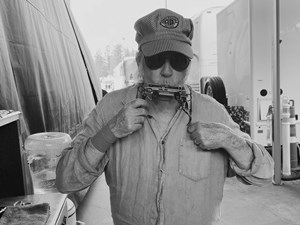Putting Bodies on the Line – the French Film Festival 2021
The 29th edition of the annual French Film Festival is here and our three selected films focus on women in French cinema – two women directors; Julia Ducournau and Catherine Corsini and one of the biggest stars of French film, La Binoche (Juliette). A further link between these three very different films is the way in which they all articulate the vulnerability and frailty of the human condition through representations and constructions of the body.
The selection starts with a true original – I can guarantee that you will not see another film like this anytime soon! Julia Ducournau made her name with her body-horror debut Raw in 2016 and Titane pursues the same visceral, violent overload as we follow its astonishing anti-heroine who mixes murder with her sexual desire for cars. The film is indeed bursting with transgression, taboo and trauma yet its melodramatic and often tender second half distils this beautifully filmed chaos into a set of haunting ideas about our relationship to our bodies and their vulnerabilities, the fluidity of identity and the lengths to which we will go to find human connection and love. Agathe Rousselle makes an astonishing debut in the leading role and Vincent Lindon delivers a real tour de force performance in his portrait of loss, ageing and estranged fatherhood. The use of music, colour saturation, close ups of the body and startling cinematography also make for a very beautiful film which you will not forget. The film was a box office success and is France’s nomination for the 2022 Oscars, yet several critics expressed shock at Cannes’ main prize going to a relatively new woman director. I would suggest that it’s more telling that Ducournau is only the second woman ever to win the Palme d’or (after Jane Campion in 1993) and that their recognition of an ‘enfant terrible’ is perhaps still only reserved for the boys.
We have another 2021 Cannes winner, the Queer Palm this time, in Catherine Corsini’s The Divide (La Fracture), which has been something of a film-event in France due to its provocative combination of social comedy and social drama. The film puts two pressing socio-political concerns - the state of the public health system and the large number of protestors injured by controversial police weapons – up on the big screen. Corsini is best known for two films which focus on lovers facing social prejudice; against class in An Impossible Love (2018) and sexuality and class in Summertime (La belle saison) (2015) and The Divide is built around multiple conflicts. When middle-class couple, Raf (Vanessa Bruni Tedeschi) and Julie (Marina Foïs) end up in A & E, which is overwhelmed by the injured from a nearby demonstration, it’s not only their strained relationship which is in need of urgent attention. The film was inspired by Corsini’s own experience of A & E and informed by radio interviews with injured protestors, yet the film also suggests the overburdened service as a more symbolic arena in which conflict and misunderstanding might be treated,if not healed. The words and bodies of injured protestor Yann (Pio Marmaï) and nurse Kim (astonishing newcomer Aïssatou Diallo Sagna) reveal the unbearable pressures of their daily lives and the wider harm done by broken social and economic systems. Whilst some critics saw the film as over-stretching itself in terms of themes, the heady mix of the couple’s darkly comic bickering, classic social comedies of misunderstanding, and its explicit engagement with social issues through the difficult negotiations between individual and collective needs made the film a big hit with audiences in France.
The third film in the season, Emmanuel Carrère’s Between Two Worlds (Le Quai de Ouistreham), also addresses acute contemporary problems. It is adapted from the non-fiction bestseller by journalist, Florence Aubenas, and based on her embedded research into the lives of those stuck in unemployment or unskilled, precarious work. Aubenas worked for months as a cleaner, boarding cross-channel ferries in Caen before they reload, with four minutes max allocated for cleaning each cabin. Her book (translated into English as The Nightcleaner) bears witness to the lives of a group of women and the systems, working conditions and social marginalisation in which they just about survive. Carrère’s film stars Binoche as writer (not journalist), Marianne Winckler, alongside a non-professional cast who are never reduced to support for a worthy star turn. The adaptation’s shift of the lead character from journalist to writer, and the subsequent thematic thread around her guilt at her use of the other women for content, could be read as Carrère’s exploration of his own creative practice. Described by The Guardian in 2014 as ‘the most important French writer you’ve never heard of’, his work often draws directly on his own life to create ‘auto-fiction’.
Despite this writerly preoccupation, the film succeeds in providing detailed and moving portraits of the impact of economic crisis and social exclusion on the women’s everyday lives. The women’s blunt humour and feisty solidarities build characters that are more than cogs in the machine but regardless of the high vis jackets that they wear to board the ferries, the invisibility and forgotten status of their bodies and lives hits home.
French cinema has a complex relationship with social drama – with critics often bemoaning the absence of a French Ken Loach, whilst critiquing films with fatalistic messages that seem to accept the impossibility of resistance or change. Yet films such as Between Two Worlds, whilst lacking both the political directness and the critical acclaim of Loach (especially his godlike status in France), do reach large audiences and provide some visibility and trace of these lives on the big screen.


